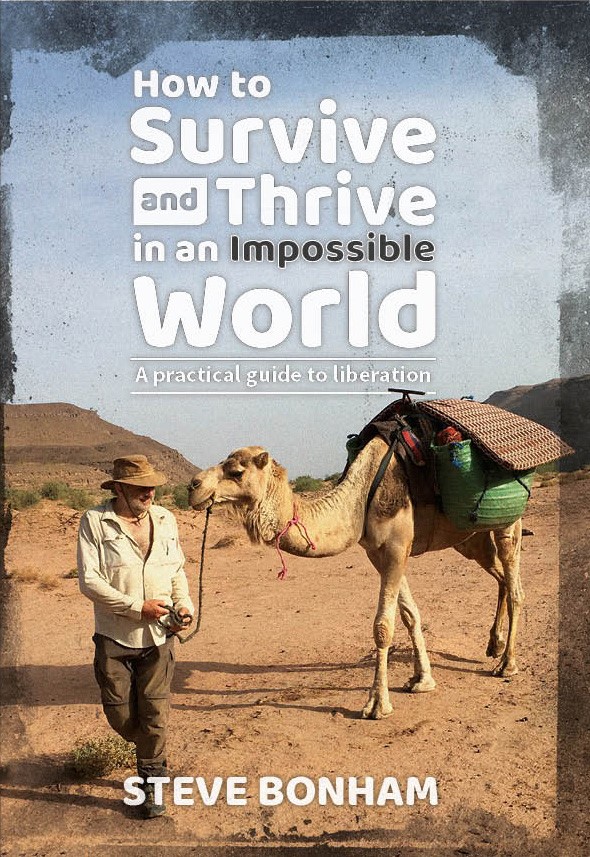by Steve Bonham
Goals, we are told, are essential to performance. To lose weight. To deliver sales. To get fit. To be effective and efficient. It may seem therefore perverse to question their place as the keystone of achievement. But goal-setting can assume too much, creating a belief that a ruthless focus of their pursuit is all that is required for an individual or organisation to flourish.
Consider the following. Every organization, every person is encouraged to set goals, often S.M.A.R.T. goals. SMART meaning specific, measurable, achievable, relevant, and time-bound. So take a SMART goal for catching fish. I am hungry. Specifically, I want to catch a trout. From a measurement point of view, it should weigh enough to feed two people. This goal should be achievable since people have caught trout in this river before. As I said, I am hungry, so that makes it relevant as it is for my dinner. From a timing point of view, I would like to catch it before 5:00 PM.
And here I am, troutless at 5:15, looking at the worm laughing at me at the end of my line.
Goals require two things if they are to be successfully delivered: knowledge and control. Knowledge of what is happening, what’s going on, what works, what doesn’t work, what really matters. And they also require capability, resources, and reliable opportunity (in the case above, a willing fish!)
And knowledge and control are in short supply in unpredictable times such as these and the result of this is that goals can quickly become impossible or irrelevant. (just how many millions of goals personal, organisational and national and even global have had to be scrapped this year) Goals are at the mercy of events.
Without goals, don’t we have chaos? I’m not saying no goals, I’m not even saying goals are not important, but I am saying that goals need to be set in the context of being quite disposable in situations of high uncertainty. Goals can kill us when they no longer are relevant or workable. In my experience, nothing much beats the dogged pursuit of the wrong thing for ensuring failure. Goals also blind us to the incredible possibilities around us and make us unresponsive.
Which is important as we are moving from a just-in-time world – surely the universe of the manic goal setter – to a just-in-case world. A world perhaps that is more balanced between the narrow pursuit of goals and a readiness for the unexpected and indeed the positive opportunities that may hold. In this, the watchwords for these times should be purpose and potential.
The biggest issue in dealing with uncertainty is retaining our sense of self in a clarity of purpose. Purpose is different from goals. Purpose is a desired state, which reflects our values, our results. It is our way of being in the world as an individual. Simply, purpose is how we want to be; goals are what we believe we need to do. Purpose is our reference point for our decision-making by which we realize that particular goals no longer suffice.
Purpose is not set in some distant future world – it exists now even if we are yet to fully embody it. Ultimately, purpose is about how we want to inhabit ourselves as all that we are as: partners, lovers, parents, jokers, inventors, teachers, carers, warriors and wanderers all contained in a single sentient and unique ‘my-self’. It is our ancient inheritance as a human being. We are all these things – as Walt Whitman suggested ‘I contain multitudes’.
Potential is about making yourself ready for whatever happens. Ready through awareness, resourcefulness, through adaptability, through commitment, through a desire to experiment and learn and change. The root of the word is interesting: potential means powerful, capable of becoming.
How do I increase my potential? In my book How to Survive and Thrive in an Impossible World, I propose 5 rules for navigating the rocky road we are now all on:
Be Wild – take steps to engage and see what is really happening in your world. Look for examples, not just evidence of what is really going on
Be Strong – Audit the hidden strengths you have available to you. You have more trapped capability than you can imagine
Be Experimental – in uncertain times, move quickly, small try-outs, see what works, scale
Travel with Companions – Insist on openness, speak the truth and commit to others that they might do the same. Are your conversations effective? Ditch well-poisoners, energy sappers and politicians
Take the First Step – be aware of redundancy in terms of goals, processes, assumptions, status – the stuff that stops movement! Procrastination is not preparation
Goals can kill you at the moment. They can give you a false feeling of security. Purpose and potential enable us to face the world squarely and confidently.
 Find out more:
Find out more:
Steve Bonham is an award-winning Business Psychologist, Musician, Speaker, Coach, Facilitator, Conference MC, inveterate explorer and author.
Bookshelf
How to Survive and Thrive in an Impossible World: A Practical Guide to Liberation by Steve Bonham, published by Artisan Creative, illustrated paperback (176 pages).

 Cart is empty
Cart is empty 
